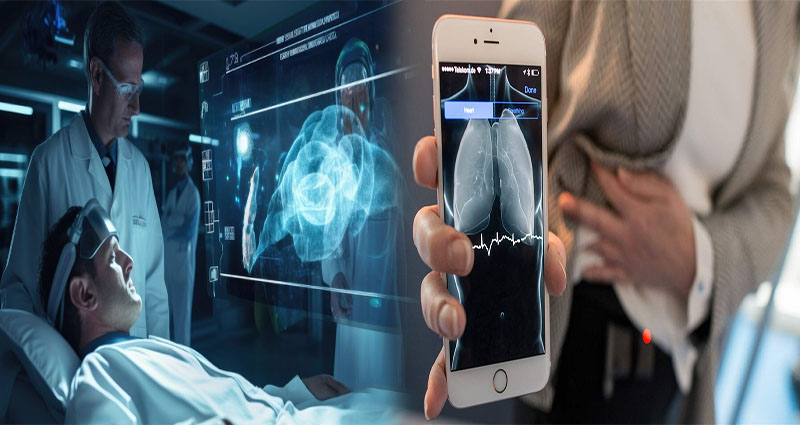As Artificial Intelligence (AI) continues to make significant strides, its potential to revolutionize the healthcare industry is creating excitement and anticipation. The predicted advancements and innovations in AI technology hold the promise of transforming healthcare processes, improving patient care, and facilitating groundbreaking medical discoveries. Here are some anticipated developments in AI technology that are expected to shape the future of healthcare applications:
1. Precision Medicine and Personalized Treatment Plans:
AI-driven algorithms have the potential to analyze vast amounts of patient data, including genetic information, environmental factors, and lifestyle patterns, to develop personalized treatment plans. By leveraging AI, healthcare providers can tailor interventions according to individual patient needs, leading to more precise diagnoses, targeted therapies, and improved treatment outcomes.
2. Enhanced Diagnostic Capabilities:
AI-powered diagnostic tools are anticipated to become more advanced, accurate, and accessible in the future. These tools have the potential to analyze medical images, pathology slides, and patient records with unparalleled precision, aiding healthcare professionals in early disease detection and facilitating timely interventions. As AI continues to evolve, the accuracy and speed of diagnostic processes are expected to improve, leading to better patient outcomes.
3. Intelligent Virtual Health Assistants:
The future of healthcare is likely to witness a surge in intelligent virtual health assistants powered by AI. These virtual assistants can interact with patients, answer medical queries, schedule appointments, and monitor patient health data, thus enhancing patient engagement and promoting proactive healthcare management. By leveraging natural language processing and contextual understanding, these virtual assistants are expected to revolutionize patient interactions and streamline healthcare communication.
4. Drug Discovery and Development:
AI is poised to revolutionize the drug discovery process by accelerating the identification of potential drug candidates and predicting their efficacy and safety profiles. Through advanced machine learning algorithms, AI can analyze complex biological data, identify drug targets, and expedite the discovery and development of novel therapeutics. This holds the potential to significantly reduce the time and cost involved in bringing new drugs to market, ultimately benefiting patients and healthcare providers.
5. Augmented Robotics and Surgical Precision:
The integration of AI with robotics has the potential to enhance surgical precision and expand the capabilities of minimally invasive procedures. Advanced AI algorithms can assist surgeons in complex tasks, such as image-guided interventions and real-time assessment of tissue characteristics, thereby improving surgical outcomes and reducing the likelihood of complications. Additionally, AI-powered robots are anticipated to automate routine tasks in healthcare settings, freeing up healthcare professionals to focus on more complex and critical aspects of patient care.
6. Predictive Analytics for Disease Management:
AI’s predictive analytics capabilities are expected to evolve significantly, enabling more accurate forecasting of disease outbreaks, patient admissions, and healthcare resource requirements. By analyzing vast datasets and real-time inputs, AI algorithms can anticipate disease trends, optimize resource allocation, and mitigate healthcare-associated risks, thus facilitating proactive disease management and improving public health interventions.
The predicted advancements and innovations in AI technology hold immense potential to revolutionize future healthcare applications. From personalized medicine to advanced diagnostic tools and predictive analytics, AI is poised to transform the way healthcare is delivered, improving patient outcomes and driving efficiency in healthcare processes. As AI continues to evolve, its impact on the healthcare industry is expected to be profound, ushering in a new era of innovation and excellence in patient care.











